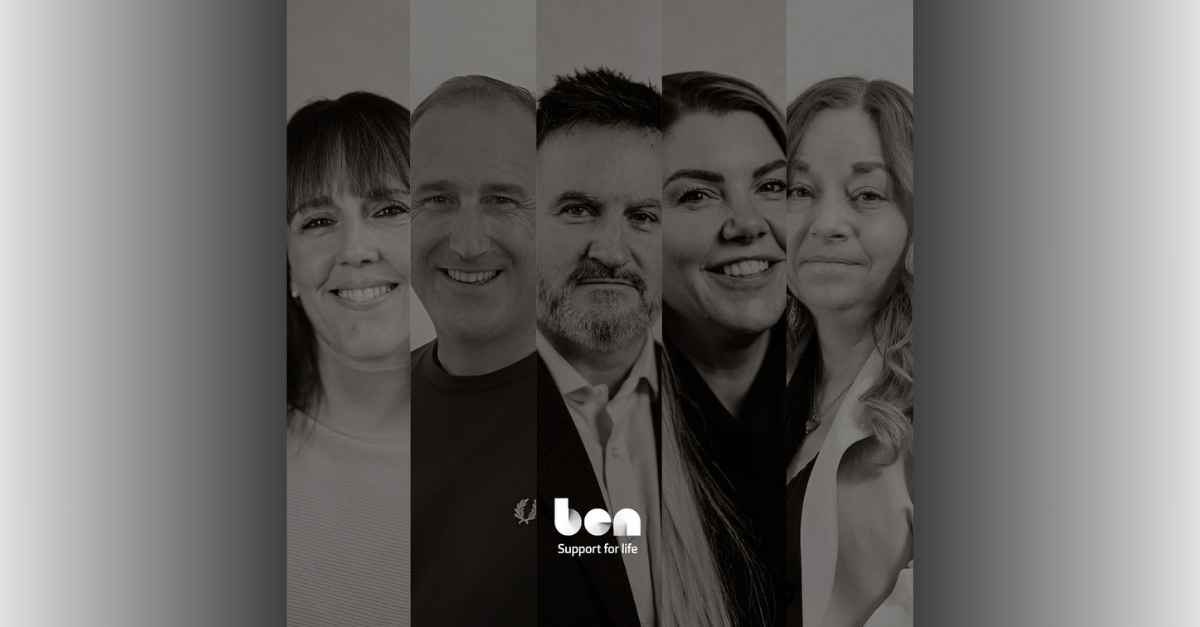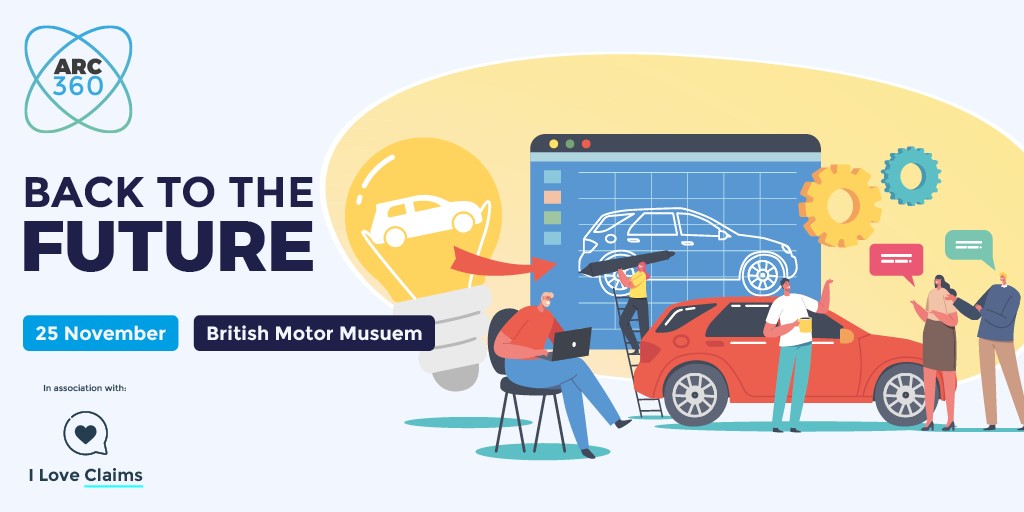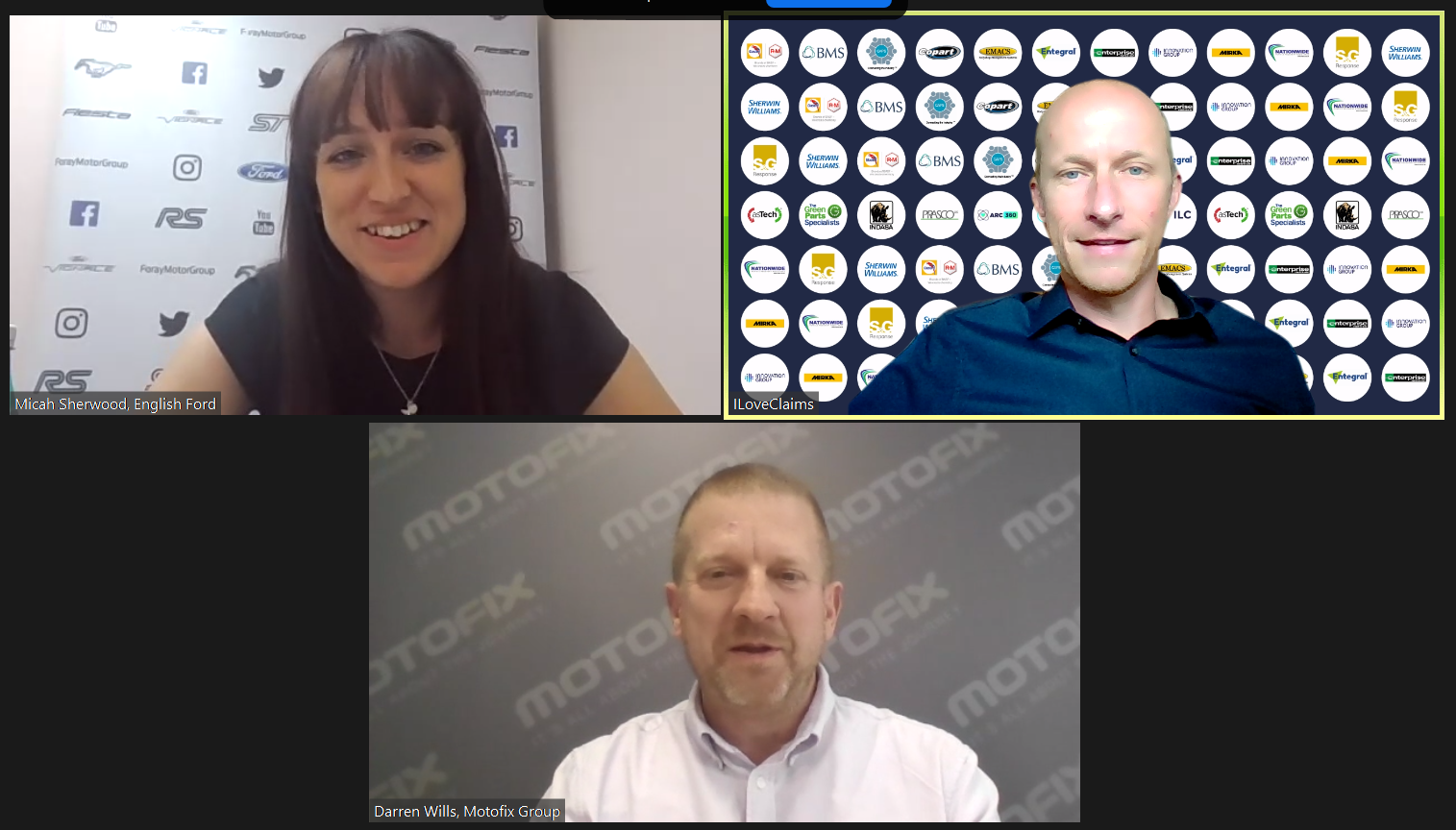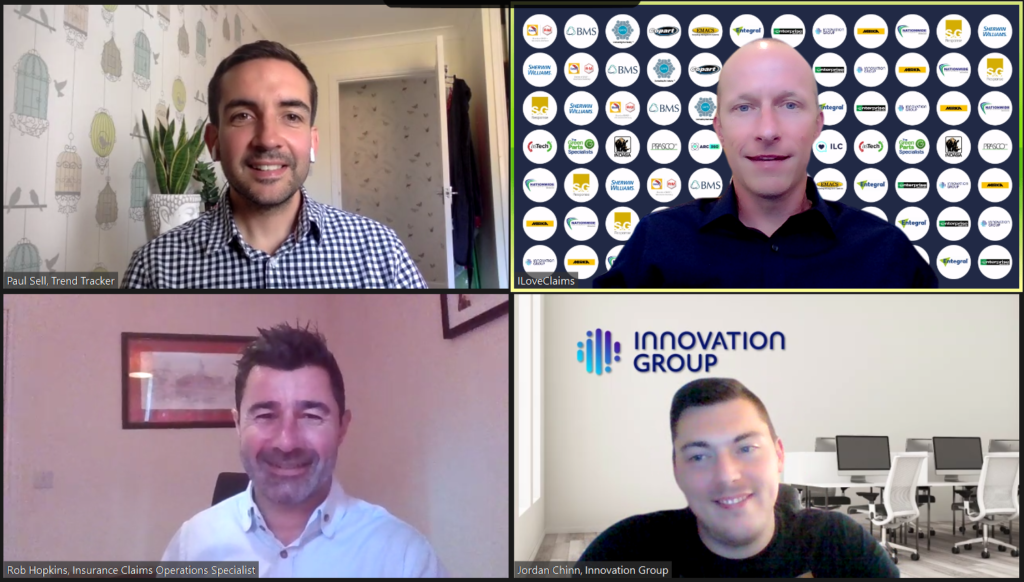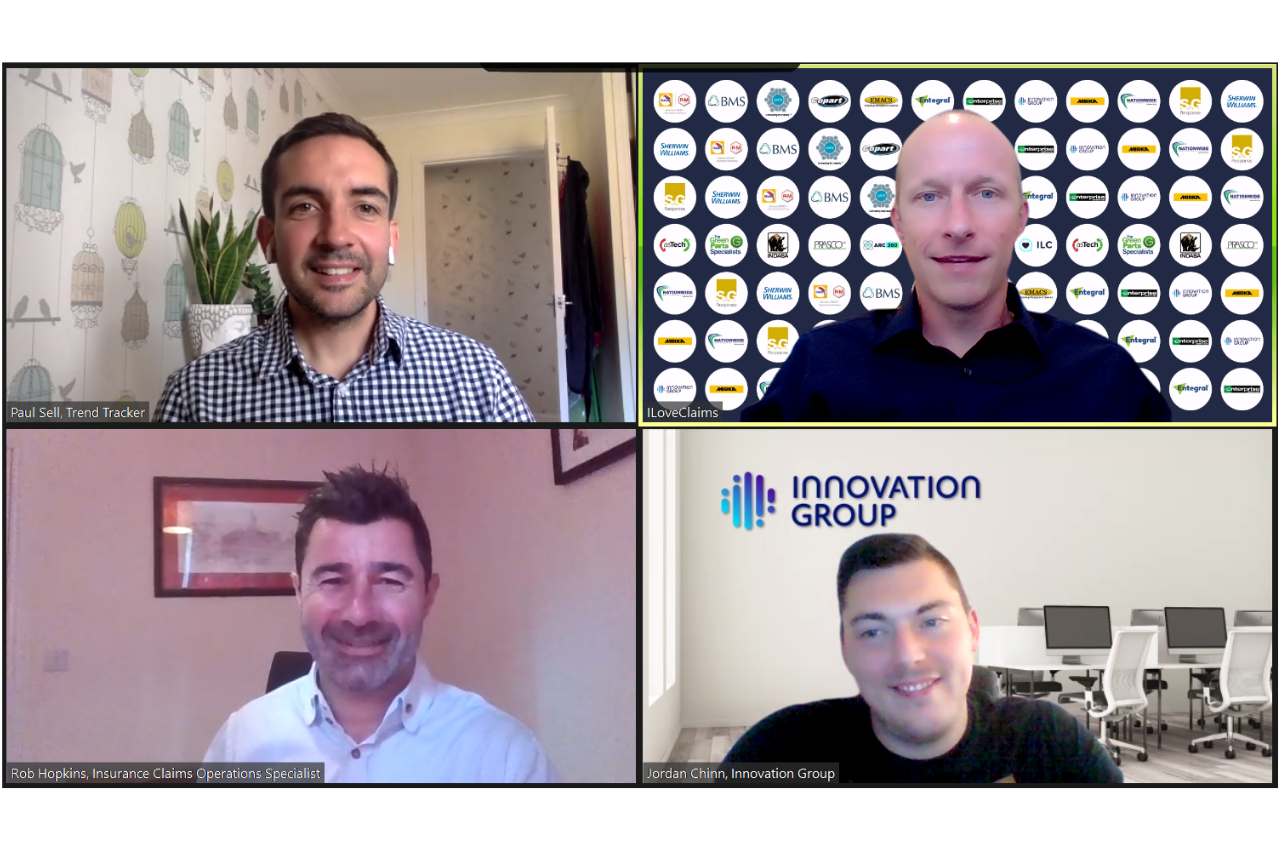Repairers and insurers have built up a new level of trust with consumers during Covid-19, but it is fragile and must not be taken for granted as the country begins to emerge from the pandemic.
That was the insightful message of the first post-summer ARC360 live webinar, held in association with I Love Claims.
The Data Jigsaw invited Jordan Chinn of the Innovation Group; insurance claims operations specialist Rob Hopkins; and Paul Sell of Trend Tracker to pick their way through the latest industry figures, but it was a far less scientific conclusion that resonated loudest.
Understanding
Rob said, ‘Customers have been very understanding of insurers and repairers who have been open with them about the challenges they’ve faced, and hybrid working has actually built up a new level of trust. It’s humanised the sector, with customers hearing dogs barking and children crying in the background during calls, but it’s fragile and we can’t take it for granted.’
He warned that fatigue of Covid-19 excuses is already setting in, and if businesses want to retain the ground they have made then they need to deliver service levels that are again being expected of them.
‘What we’ve been through has been remarkable, but customer perception is that everything is now normal again, and perception is reality so we have to respond to that very quickly.’
However, that is easier said than done.
Variations
It’s true that some consistency has returned to the industry; Trend Tracker has found that repair volumes are averaging 15% more than what they were two months ago, and fuel levels, which indicate traffic volumes, are at 85% of what they were in 2019 despite electric vehicles now taking a 15% marketshare.
But business planning remains incredibly difficult.
Although cars have returned to the road the traffic is less predictable, with commuting patterns spread out through the week. Weekdays remain less busy than they were pre-Covid-19, and the daily rush hour has extended in length, with fewer claims per hour.
School holidays have no doubt influenced this, but hybrid working remains a telling factor and could do indefinitely.
Hybrid working
Rob said, ‘The hybrid working environment has a lot more capacity and capability now, so the work commute has been disrupted and will remain that way. What we thought could never be done from home can be done from home, and although businesses will still have offices, they will use them in a different way.’
Furthermore, volumes continue to vary dramatically from region to region. While some regions are still quiet, staycation areas such as Devon and Cornwall, for example, have been inundated with work and in many cases the aftermarket has been unable to service it all.
Jordan said, ‘We have got an accurate capacity management policy in place, but we’re finding it difficult to manage volumes in the staycation hotspots because there just aren’t the bodyshops there. It’s difficult because not long ago repairers were trying to get more volume from work providers, but now they have too much volume and in some cases it’s a case of last in and first out.’
Supply
On top of this, the extreme disruption to supply chains is having a severe impact on the sector. With new cars in such short supply, the value of used cars has rocketed to never-seen-before levels.
That in turn has resulted in more damaged vehicles being repaired instead of written off, but this is not necessarily the good news for bodyshops it appears to be. The supply crisis has impacted spare parts too, with some taking 20 weeks or more to arrive. As such, repair costs have escalated.
Jordan continued, ‘We are looking to repair more vehicles, which is good news for repairers, but the parts issues mitigate any advantages repairers might get.’
Planning
Looking ahead, September could be a bell-weather month for the sector. Paul predicts it could be the best September on record for volumes, and has also identified other notable trends.
He said, ‘This could be the first month when more electric vehicles are sold than non-electric vehicles. I think in August it was 52%-48%, so we could see that shift. Also, the sale of commercial vehicles in still booming and I expect that to continue for the next three to six months.’
Paul estimates volumes climbing to 90% of pre-pandemic levels, but he admits that forecasting now is more of an art than a science, with historical data counting less than it did. Rob agreed.
He said, ‘We don’t dismiss historical data, some of it gives us a good basis, but what we see more of now are leading measures, predictors, whether it’s geographical or customer habits. Both are important, but there has been a shift to leading measures.’
ARC360, in association with I Love Claims, is supported by corporate partners BASF, BMS, Copart, EMACS, Entegral, Enterprise Rent-a-Car, Innovation Group, Mirka, Nationwide Vehicle Recovery Assistance, S&G Response, Sherwin Williams and CAPS; partners asTech, The Green Parts Specialists, Indasa and Prasco UK.



